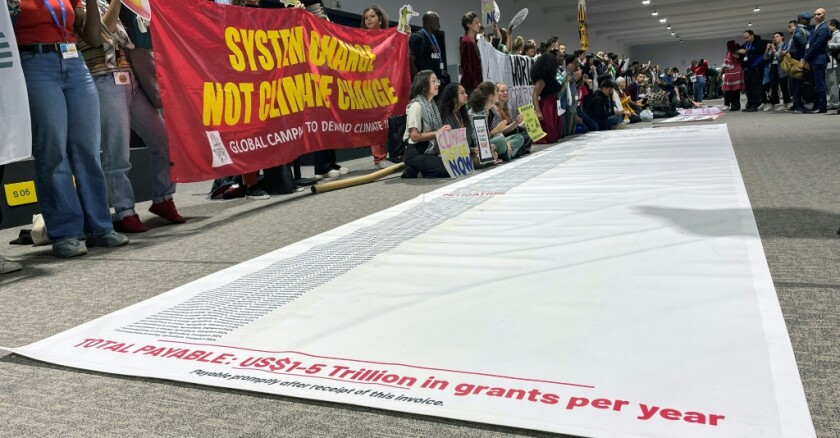As COP29 enters its final hours without an agreement, developing nations may be prompted to revise their funding requests to combat climate change. Mary Robinson, former President of Ireland and United Nations Special Envoy for Climate, pointed out that wealthy countries, under budgetary pressures from inflation, COVID-19, and conflicts, including the war in Ukraine, are struggling to meet financial expectations. Despite the absence of a formal proposal, the summit continues its quest for $1 trillion per year to help poor nations reduce CO2 emissions and face extreme climate phenomena.
At the COP29, discussions continue on climate financing as developing countries may be forced to make compromises, according to Mary Robinson, former UN climate envoy. The negotiations are marked by tensions between wealthy and developing countries, particularly regarding the amount needed to transition to a low CO2 economy and cope with extreme weather conditions. Despite the necessity of annual funding of $1 trillion, developed countries are only planning around $300 billion in public underfunding, leading to disappointment and frustration among the most vulnerable nations.

COP 29 Live: The Issues of Climate Financing
The transition to a sustainable future requires a massive injection of funds from developed countries to developing countries. However, due to current economic challenges such as inflation and the persistent impacts of the COVID-19 pandemic, financial provision remains limited. Many wealthy nations have yet to propose solid solutions to mobilize the necessary funds, raising major concerns during COP29 discussions.
Mary Robinson’s View on Financing
Mary Robinson, the former President of Ireland and two-time UN Special Envoy for Climate, explained that developing countries may need to moderate their expectations regarding climate financing. She emphasized that while developed nations have an undeniable responsibility for financial aid, it is crucial to recognize the budgetary constraints resulting from multiple global crises, including the conflict in Ukraine and rising commodity prices.
Alternative Solutions for Financing the Transition
In the face of developed countries’ inability to reach the $1 trillion threshold to aid the climate transition, it becomes imperative to explore alternatives such as private sector investment, carbon trading, and fossil fuel taxation. The integration of these strategies could help achieve ambitious sustainable development goals. Meanwhile, innovations such as greentech technologies are redefining the industry, allowing for increased energy efficiency and reduction of the carbon footprint of buildings, thereby strengthening global efforts for a greener future.
Articles similaires
Thank you!
We will contact you soon.














